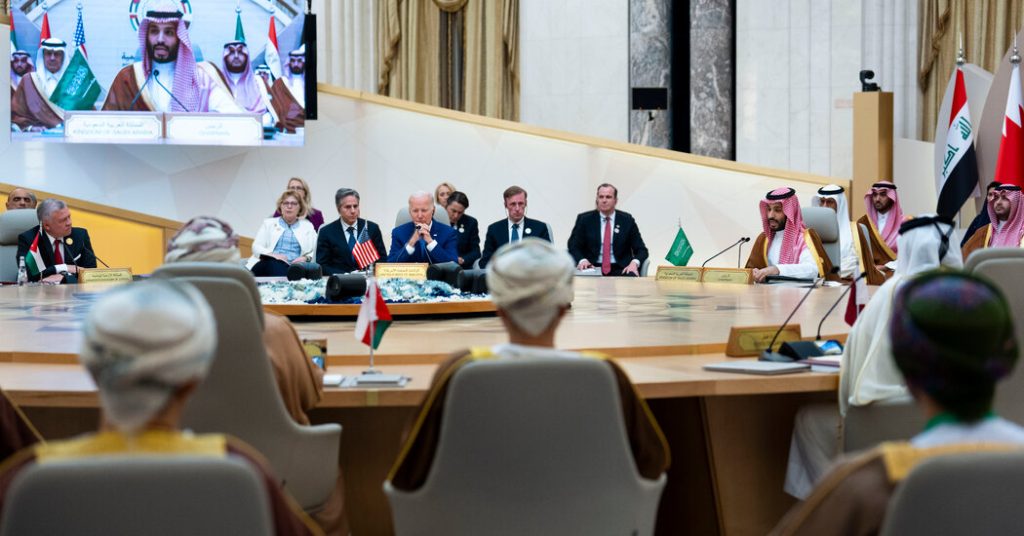Two years into President Biden’s term, negotiations between his administration and Saudi leaders to establish diplomatic relations with Israel were put on hold due to the Israel-Hamas war in October. However, efforts are underway to revive the talks by demanding more from Israel, including a cease-fire in Gaza and steps towards the creation of a Palestinian nation. A potential agreement between the U.S. and Saudi Arabia is close to being finalized, which includes a mutual defense pact and cooperation on a civilian nuclear program in Saudi Arabia. Secretary of State Antony Blinken and White House national security adviser Jake Sullivan have been engaging with Saudi leaders about these matters.
Despite the potential benefits for Israel in establishing ties with Saudi Arabia, Israeli leaders remain resistant to the idea of moving forward with the agreement. Prime Minister Benjamin Netanyahu has rejected calls for the creation of a Palestinian state, citing concerns about it becoming a “terror haven.” Israeli public opinion also largely opposes the idea. The lack of a governance plan for Gaza from Netanyahu has led to criticism from within his own government. American and Saudi officials are putting pressure on Israel to agree to a Palestinian state for the finalization of any agreement.
The potential agreement between the U.S. and Saudi Arabia would also involve Israel, with the goal of working towards regional peace and security cooperation to counter shared adversaries like Iran. The challenges lie in getting Israel to agree to a Palestinian state as part of the deal. Saudi and American policy analysts have suggested that a “plan B” focusing on bilateral agreements might be more realistic given the difficulty of achieving Israeli-Palestinian peace. Saudi officials, however, continue to push for a larger deal that includes Israeli commitment to a Palestinian nation.
Efforts to finalize a deal have hit roadblocks, particularly regarding a sustainable cease-fire in Gaza. Despite warnings from countries like Saudi Arabia, the United States, and others, Israel has avoided committing to a permanent cease-fire and has intensified strikes in Rafah. On the domestic front, Saudi officials remain wary of the political cost of normalizing relations with Israel. Some view the experiences of the UAE and Bahrain, who normalized ties with Israel under the Abraham Accords, as cautionary tales.
The potential agreement between the U.S. and Saudi Arabia includes the establishment of a mutual defense treaty modeled after pacts with other U.S. allies. The treaty is aimed at addressing threats from Iran, which remains a major concern for Saudi Arabia. The two sides are working on conditions that would activate the mutual defense clause. Additionally, discussions are ongoing about Saudi Arabia’s cooperation with China and the commitment to buying oil in dollars rather than renminbi. The Biden administration hopes to secure promises from Saudi Arabia to keep oil prices stable.
Another key aspect of the potential agreement with Saudi Arabia involves cooperation on a civilian nuclear program, which is a top priority for Crown Prince Mohammed. Negotiations are focused on ensuring strict oversight of in-country uranium enrichment to prevent the development of nuclear weapons. Some U.S. lawmakers and Israeli officials are concerned about Saudi Arabia having a nuclear program. Overall, the discussions reflect complex geopolitical dynamics in the region and the challenges of balancing various interests and priorities.







